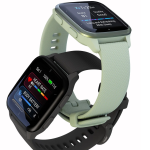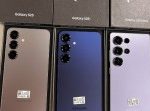Brandon Blackwood
- Brandon Blackwood is a handbag designer who is on track to book $30 million in revenue this year.
- His eponymous business is best known for its “end systemic racism” tote that went viral last summer.
- He found success by cultivating connections with customers and sharing his political views on Instagram.
- See more stories on Insider’s business page.
Fashion designer Brandon Blackwood was at a crossroads last summer: Along with other Black-owned brands, he saw an increase in support as Black Lives Matter protests swept the nation. He was inspired but didn’t want to create just another handbag for his collection.
“It felt fake and dangerous to do at such an important time,” Blackwood said.
In early July, he conceptualized a small tote bag printed with the words “end systemic racism” and planned to donate a portion of proceeds to the pro bono legal assistance program Lawyers Committee for Civil Rights. Almost two weeks later, Blackwood launched his collection of 500 “ESR” bags, made in 37 different colors and materials.
It sold out in two hours. “That’s when I knew the bag was more powerful and necessary than even I expected,” Blackwood told Insider.
Blackwood built his eponymous fashion label in six years and is now selling in the prestigious retailers that once rejected his designs. He found success by cultivating connections with customers and sharing his political views on Instagram.
Brandon Blackwood, which sells in bags ranging from $70 to $8,500, booked $3 million in revenue last year. Today, the brand already netted $6.5 million in revenue and estimates it will hit $30 million by the end of the year, according to documents viewed by Insider.
Blackwood shared how he built a brand with strong messaging that’s been sported by celebrities like Kim Kardashian, Normani, and Joan Collins.
Building a Black-owned brand from the ground up
Blackwood was born and raised in Brooklyn, and when it came time for college, his parents believed he was pursuing a degree in neuroscience at Bard College in upstate New York.
Brandon Blackwood
Growing up in a “strict Jamaican household,” he had two options: become a doctor or lawyer. “It was ingrained in me that no other job exists and nothing else will make you successful,” said Blackwood, now 29.
But he secretly pursued fashion instead, interning at Bergdorf Goodman and Elle Magazine, in addition to working with a manufacturer to make custom handbags for himself.
On graduation day, the announcer read the title of his thesis as he walked across the stage. His parents were expecting to hear something neuroscience-related and not his actual thesis title, “Diane von Furstenberg: Feel Like A Woman, Wear a Dress.”
“My whole family was caught off guard,” Blackwood recalled. “But I was like well, I can’t turn back now.”
After college, in 2013, Blackwood returned to Brooklyn and worked as a buyer at a consignment shop for about $10 an hour. During that time, strangers often compliment the backpack he designed and wore, asking where they could buy it.
“That’s where it clicked,” said Blackwood, who then aspired to create a brand people would feel proud to wear. “I should start taking this more seriously.”
He trademarked his name and began saving money – often opting to walk instead of paying subway fare. “It was either pay for my samples or a train ticket to work, ” he said.
Blackwood saved $7,000 and officially launched his brand in 2015 with four bags named after his close friends and brother. But he couldn’t get into stores because his name wasn’t big enough and e-commerce sales were slow because nobody knew who he was.
“No one was really seeking Black-owned brands,” he said. “It was about top-selling brands, which was disheartening to see.”
Zacharina Dainkeh
Using Instagram to connect with fans and reach cult-status
To build a relationship with customers, he used Instagram to boost his voice and identity. Blackwood often shared candid photos of himself with his bags, his diverse consumer base, and used the platform to voice his political opinions.
In the comments, he also would ask shoppers what colors and materials they’d want to see on his next bags. Business was steady, until 2020 when he released the “end systemic racism” tote.
After selling out his initial 500 bags, Blackwood restocked and sought celebrities who would promote it on social media. Most were reluctant to do so, he said.
Then, in August, he took a chance and cold messaged Kardashian on Instagram, asking her to share a photo with her 224 million followers. She obliged, and in late October, shared a picture that received more than 2 million likes.
“When she did that everyone began circling back around,” Blackwood said. Since then, other bag styles have gone viral, such as its mini trunk bag seen styled on Jessica Alba. He’s also begun working with a diverse set of celebrities to promote his work, including singer Doja Cat, model Winnie Harlow, and tech heiress Jaime Xie.
Most of his consumers are millennials and Gen Zers, who support brands that appear authentic and share their socio-political and ethical views. Fashion blogger Zacharina Dainkeh, 23, bought the “ESR” tote last summer, telling Insider the message resonated with how she was feeling at the time.
“I always support businesses that are important to me,” she said, adding that Black designers are undervalued. “We are not trends – we are everlasting and here to stay.”
Predencia Solange, 28, an account executive based in Brooklyn also bought the “ESR” tote in an effort to support more Black designers. She said systemic racism has played part in her life as a woman and color, and being more sociopolitically conscious as a Black woman also meant being also being more conscious as a buyer, she told Insider.
“I wear the bag in style, mood and politics,” she said.
A future without the End Systemic Racism tote
This March, Blackwood discontinued the tote. He didn’t want the bag to become a trend that distracts from its initial purpose to give back.
Brandon Blackwood
But he’s already made a name for himself that extends beyond the viral hit.
The brand just released its spring selection of bags, and some styles have already sold out. He’s now joined other Black fashion entrepreneurs such as Telfar Clemens, Christopher John Rogers, and Kirby Jean-Raymond, who are seeking to redefine the luxury sector.
Luxury within the Black community is about comfort and taste, rather than price point, said Blackwood and fashion historian Darnell-Jamal Lisby. For the new rising crop of Black luxury entrepreneurs, it’s also about being accessible and making sure Black people can be included in the conversation of luxury that has long excluded them.
This is one reason why Blackwood’s company insists on letting customers pre-order items to ensure everyone gets a bag, similar to Telfar’s Bag Security Program, which Insider hailed the “New White Glove Treatment.”
Today, Blackwood’s bags are sold in some of the very stores that once turned him down. He hopes to expand into shoes, outerwear, and sunglasses to become a household name.
“People think I’m this new person who came from nowhere but that’s not the case – there are five years of history behind this,” he said. “This is one of the few times where I can finally take a step back and breathe.”
Powered by WPeMatico






